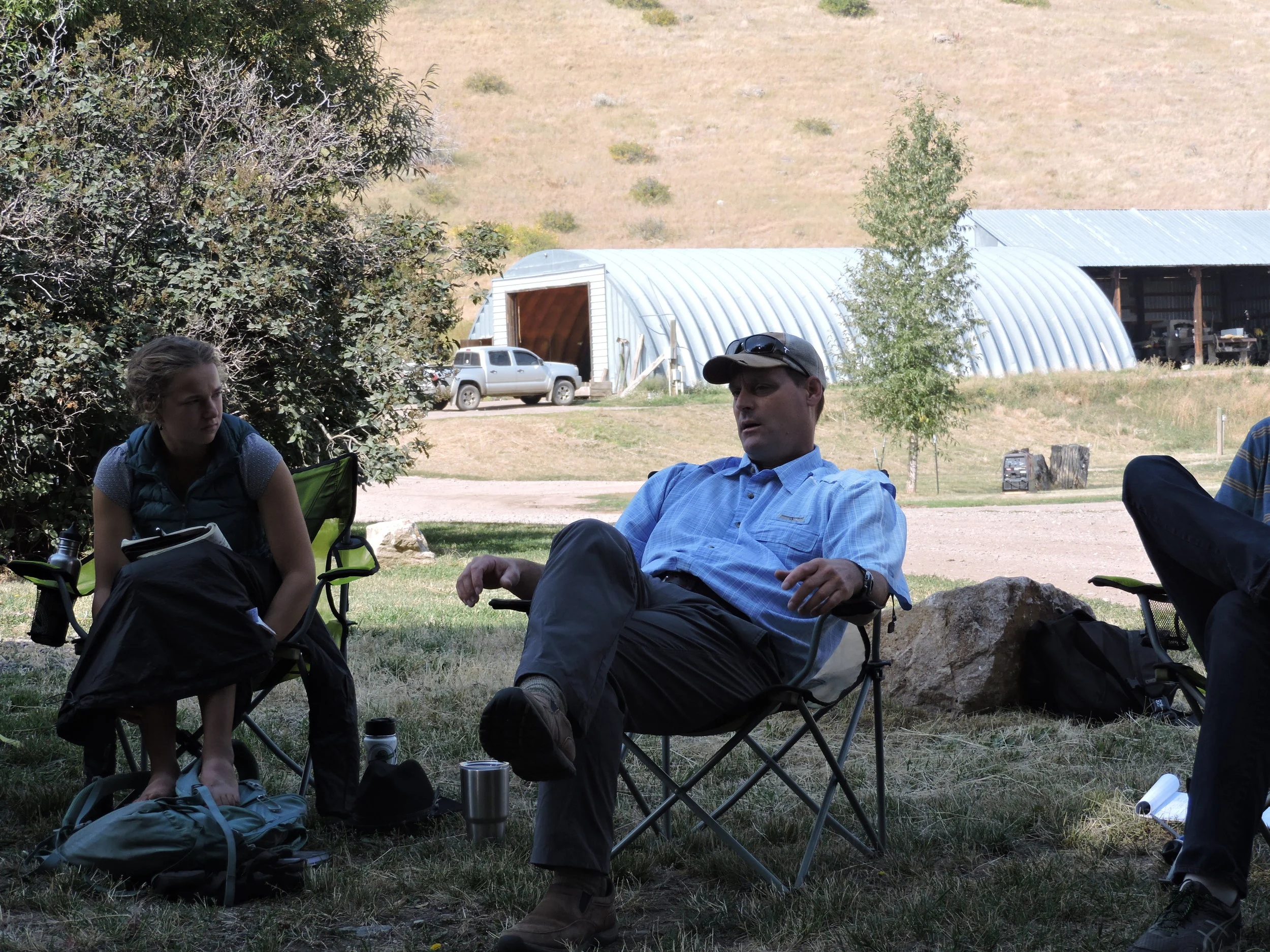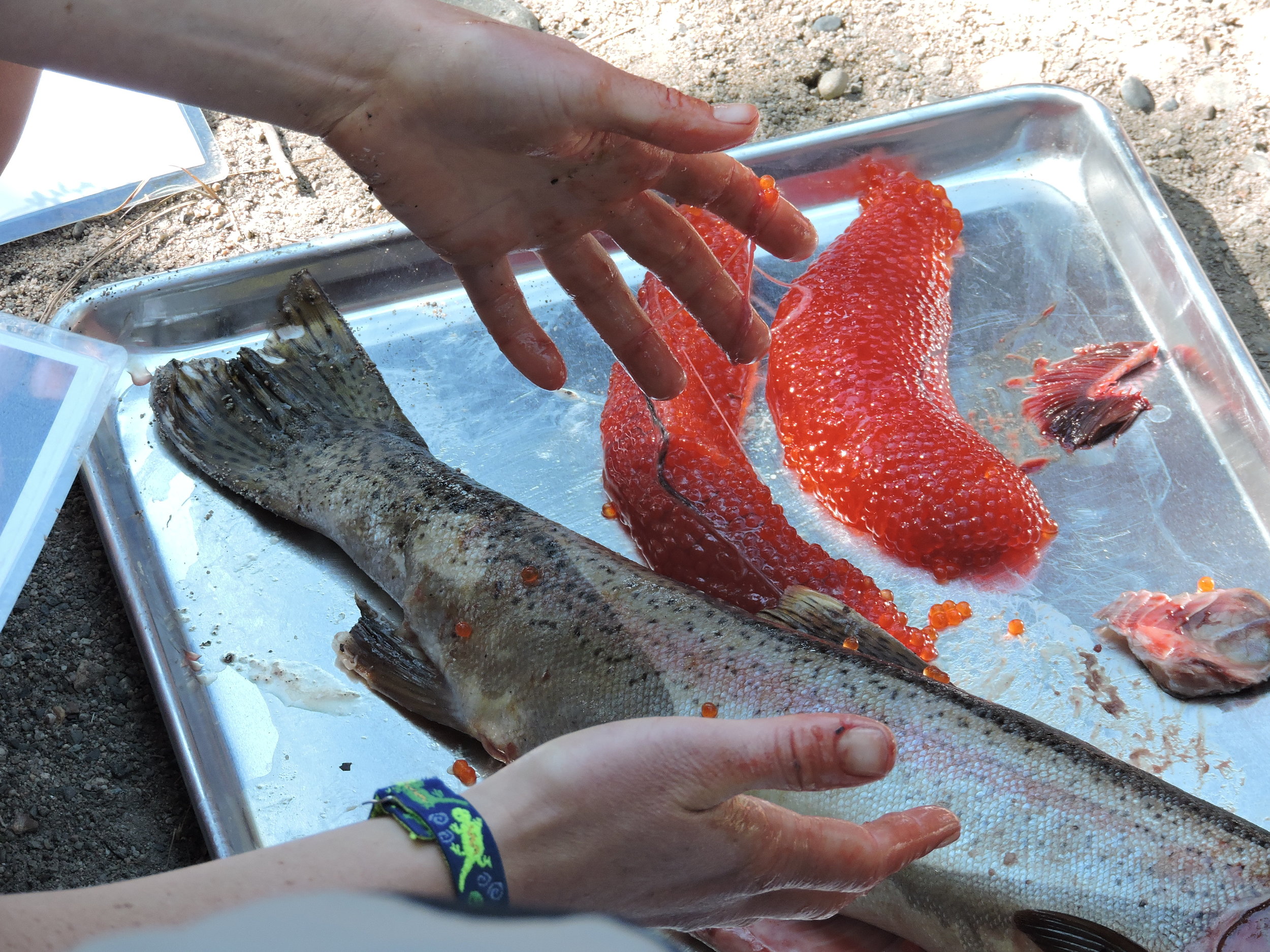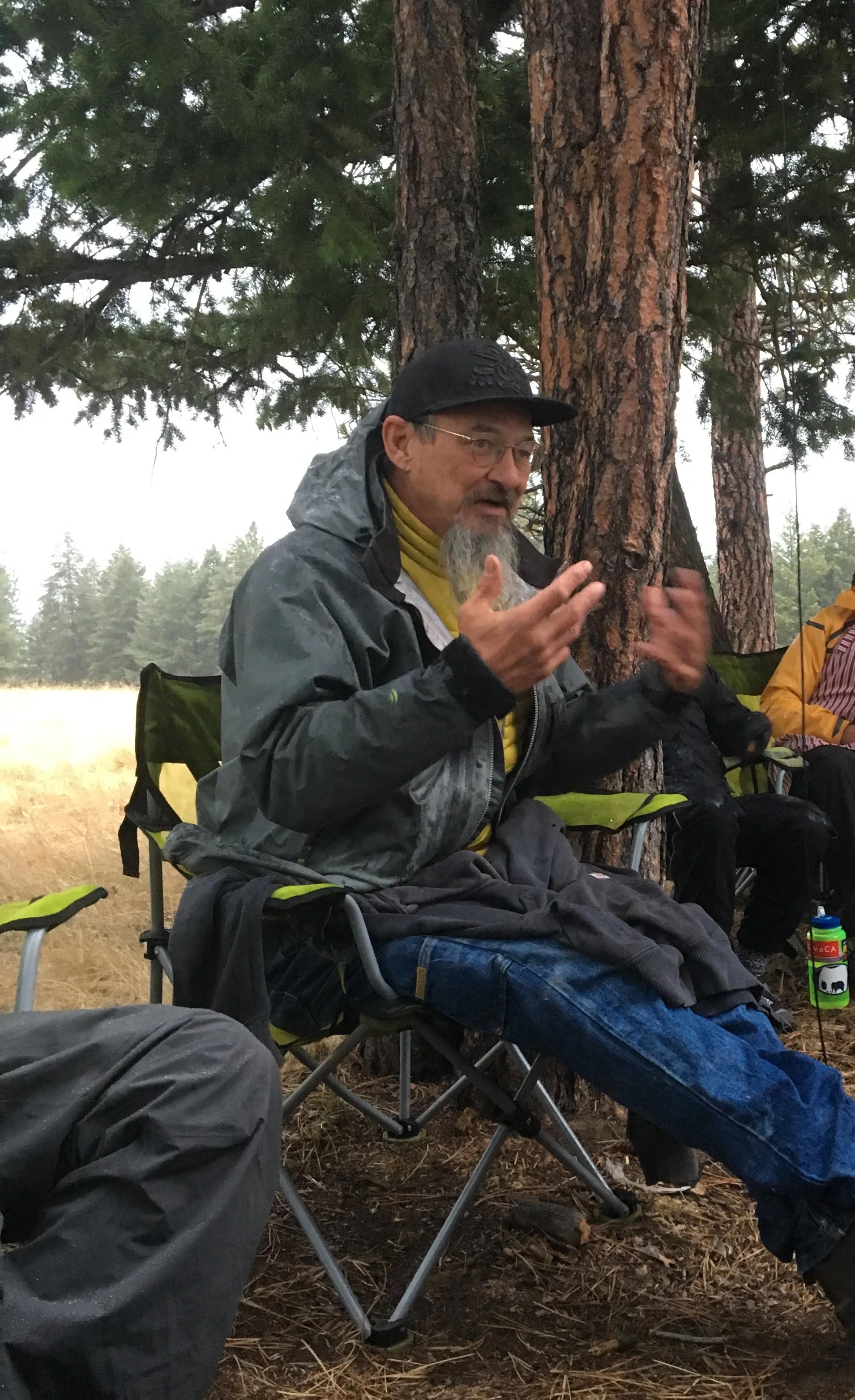Carter Kruse
Director of Conservation, Turner Enterprises
Bozeman, MT
9/7/2018
Carter Kruse, the Director of Conservation and Coordinator of the Biodiversity Divisions of Turner Enterprises, sits with us in one of the few developed areas of the Flying D Ranch. The Flying D is the flagship ranch of Ted Turner, and an iconic part of Turner’s quest for ecological restoration and rewilding of the West. Kruse has played a critical role in the Turner vision for what this property could look like. As fisheries manager, he developed and put into action the restoration of 60 miles of Cherry Creek, which flows through the center of the ranch. Once brimming with native Westslope Cutthroat trout, they were outcompeted via the introduction of Brook and Brown trout, both fish invasive to the western states. Kruse’s plan involved poisoning the water, killing all fish in Cherry Creek, then reintroducing Westslope cutthroat trout to the river. This has proved one of the most ambitious river restoration projects to date.
The Biodiversity Divisions of Turner Enterprises, according to Kruse, represent “the largest private effort on behalf of endangered species preservation”. But he also refers to Turner Enterprises as a “reasonable illusion” concerning their efforts in conservation. He realizes that raising bison in a landscape with fences is not ‘natural’ and would probably be looked down upon by the public, especially the ranch’s use of feedlots to raise the bison to a correct weight. Kruse also looks down on trophy hunting, both because it is a form of bragging, but also because it is an ineffective way to manage an animal population if you only kill the largest, healthiest males. Yet he admits that it brings in a lot of money for Turner Enterprises and enables their conservation work to continue.
After lunch I ask Kruse what his favorite part of his job is. With little pause, he replies that his favorite part is being able to go out to a creek on Turners property and test for fish size and health, or more simply, just going fishing.
By David Dregallo



